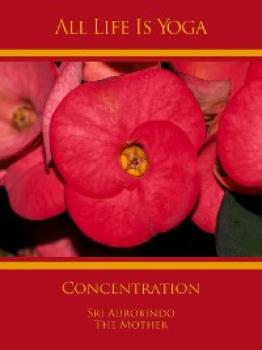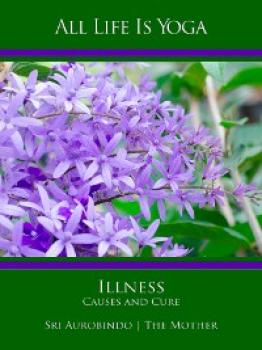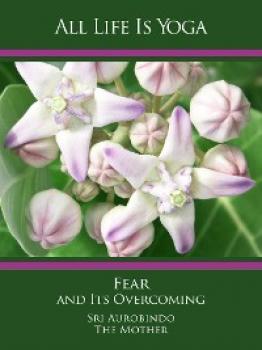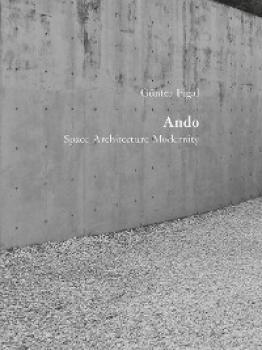ТОП просматриваемых книг сайта:
Автор
Все книги издательства АвторThe story of Diana, the little dragonfly who wants to help everyone. English-Arabic. / اللغة الإنكليزيَّة - العَربيَّة. قصة اليعسوبة الصغيرة لوليتا التي ترغب بمساعدة الجميع - Wolfgang Wilhelm
Аннотация
New release of the classic in English-Arabic! Ladybird Marie is sick. She can no longer paint. Her hands and wings are in splints. Diana, the dragonfly always helps other animals and helps Marie. Will Marie ever paint again? As the summer comes to an end, Diana feels unwell. Now who can help Diana?فِي العَدَدِ القَادِم مِن سِلْسِلَة القِصَص! اللغة الإنكليزيَّة – العَربيَّة..الخُنْفُسَاء مَاري يَائِسَة. فَهِيَ لَمْ تَعُدْ قَادِرة عَلى الرَّسْمِ ، وَذَلِكَ لأنَ يَدَهَا وَجَنَاحَها مُلتَويَين. أما اليعسوبة لُولِيتا ، التي تساعد دائماً جميع الحيوانات ، فَسَتُطَبِّبُ ماري أيضاً. فهل سَتَتَمَكن ماري مِنَ الرَسْمِ بِشَكلٍ جَيِّد من جَدِيد؟ وَعِندَما قَارَبَ الصَّيف عَلَى الإنْتِهاءِ سَاءَ حَالُ لُولِيتا. فمَن سَيَقُومُ بِمُسَاعَدَتِها الآن؟
La storia della poiana Matteo che non vuole cacciare i topi. Italiano-Inglese. / The story of the little Buzzard Ben, who doesn't like to catch mice. Italian-English. - Wolfgang Wilhelm
Аннотация
Nuova edizione in italiano del classico inglese!Bella la coccinella incontra la piccola poiana Matteo.Matteo non vuole cacciare i topi, preferisce giocare con loro.I suoi genitori non sono contenti ma un giorno la famiglia delle poiane viene minacciata dalle cornacchie…New release of the classic in Italian-English!Ladybird Marie meets the little Buzzard Ben who doesn't like to catch mice.He prefers to play with them. His parents don't like this!But then the buzzard family is threatened by crows…
Die Geschichte vom kleinen Bussard Horst, der keine Mäuse fangen will. Deutsch-Italienisch. / La storia della poiana Matteo che non vuole cacciare i topi. Tedesco-Italiano. - Wolfgang Wilhelm
Аннотация
Neuauflage des Klassikers! Deutsch-Italienisch.Marienkäfer Marie trifft den kleinen Bussard Horst. Der möchte keine Mäuse fangen. Er spielt lieber mit den Mäusen. Seinen Eltern gefällt das gar nicht! Doch dann wird die Bussardfamilie von Krähen bedroht…Nuova edizione in italiano del classico tedesco.Bella la coccinella incontra la piccola poiana Matteo.Matteo non vuole cacciare i topi, preferisce giocare con loro.I suoi genitori non sono contenti ma un giorno la famiglia delle poiane viene minacciata dalle cornacchie…
Die Geschichte von der kleinen Schwalbe Ina, die nicht in den Süden fliegen will. Deutsch-Italienisch. / La storia della rondinella Sofia, che non vuole volare al sud. Tedesco-Italiano. - Wolfgang Wilhelm
Аннотация
Neuerscheinung! Deutsch-Italienisch.Marienkäfer Marie trifft die kleine Schwalbe Ina. Keiner möchte mehr Inas Gute-Nacht-Lieder hören, die sie den ganzen Tag über singt.Darüber ist Ina sehr traurig. Als ihre Familie in den Süden fliegen will bleibt Ina bei ihrer kranken Freundin Marie.Nuova edizione in italiano del classico tedesco.Bella la coccinella incontra la rondinella Sofia. Sofia è molto triste: nessuno vuole più ascoltare le ninne nanne che la piccola rondine canta per tutta la giornata.Quando la sua famiglia decide di volare al sud, Sofia rimane con la sua amica malata Bella.
Аннотация
"Concentration does not mean meditation; on the contrary, concentration is a state one must be in continuously, whatever the outer activity. By concentration I mean that all the energy, all the will, all the aspiration must be turned only towards the Divine and His integral realisation in our consciousness." – The Mother
Аннотация
Selections from the works of Sri Aurobindo and the Mother on Yoga, health and healing.
"Instead of being upset and struggling, the best thing to do is to offer one’s body to the Divine with the sincere prayer, “Let Thy Will be done.” If there is any possibility of cure, it will establish the best conditions for it; and if cure is impossible, it will be the very best preparation for getting out of the body and the life without it. In any case the first indispensable condition is a quiet surrender to the Divine’s will." – The Mother
"Instead of being upset and struggling, the best thing to do is to offer one’s body to the Divine with the sincere prayer, “Let Thy Will be done.” If there is any possibility of cure, it will establish the best conditions for it; and if cure is impossible, it will be the very best preparation for getting out of the body and the life without it. In any case the first indispensable condition is a quiet surrender to the Divine’s will." – The Mother
Аннотация
A compilation from the works of Sri Aurobindo and the Mother.
"It is true that what one fears has the tendency to come until one is able to look it in the face and overcome one’s shrinking. One must learn to take one’s foundation on the Divine and overcome the fear, relying on the help to carry one through all things even unpleasant and adverse. There is a Force that works even through them for the seeker and carries him towards his goal." (SRI AUROBINDO)
"Fear is an impurity, one of the greatest impurities, one of those which come most directly from the anti-divine forces which want to destroy the divine action on earth; and the first duty of those who really want to do yoga is to eliminate from their consciousness, with all the might, all the sincerity, all the endurance of which they are capable, even the shadow of a fear. To walk on the path, one must be dauntless, and never indulge in that petty, small, feeble, nasty shrinking back upon oneself, which is fear. An indomitable courage, a perfect sincerity and a sincere self-giving, so that one does not calculate or bargain, does not give with the idea of receiving, does not trust with the idea of being protected, does not have a faith which asks for proofs – it is this that is indispensable in order to walk on the path, and it is this alone which can truly shelter you from all danger." (THE MOTHER)
"It is true that what one fears has the tendency to come until one is able to look it in the face and overcome one’s shrinking. One must learn to take one’s foundation on the Divine and overcome the fear, relying on the help to carry one through all things even unpleasant and adverse. There is a Force that works even through them for the seeker and carries him towards his goal." (SRI AUROBINDO)
"Fear is an impurity, one of the greatest impurities, one of those which come most directly from the anti-divine forces which want to destroy the divine action on earth; and the first duty of those who really want to do yoga is to eliminate from their consciousness, with all the might, all the sincerity, all the endurance of which they are capable, even the shadow of a fear. To walk on the path, one must be dauntless, and never indulge in that petty, small, feeble, nasty shrinking back upon oneself, which is fear. An indomitable courage, a perfect sincerity and a sincere self-giving, so that one does not calculate or bargain, does not give with the idea of receiving, does not trust with the idea of being protected, does not have a faith which asks for proofs – it is this that is indispensable in order to walk on the path, and it is this alone which can truly shelter you from all danger." (THE MOTHER)
Аннотация
The fact that discussions of architecture are largely unchartered territory in philosophy leads the phenomenological and hermeneutical philosopher Günter Figal onto its unexplored paths. After previously surveying the work of Frank Lloyd Wright and Peter Zumthor, Figal turns his attention to Tadao Ando’s buildings in this book. Figal’s philosophical considerations include refl ections on space, modernity, but also—in light of the fact that many of Ando’s buildings are museums or house works of art—on art. Figal explores Ando’s buildings—simple and reduced in their sparing use of only a few materials—as manifestations of the architect’s sense for what is possible. Ando’s buildings determine and change their locations; through their passageways, staircases, and transitional areas, they infl uence how visitors behave in them, and also communicate a sense of tradition without being traditional. Figal’s book steps away from the beaten track of architectural discourse.
Аннотация
This book is a must-read for anyone interested in transforming the impersonal character of the medical experience into a personalized, relational, spiritual, and holistic dialog about human health.
It promotes a holistic vision of the doctor-patient relationship, a medicine that ought to be based on the totality of the human experience rather than on the reductive view of the patient as a person with a certain disease.
Ken A. Bryson describes the character of medicine as the gateway to holistic healing and argues that we need to secure the ethical foundation of universal medicine as not relative to a cultural setting, thus establishing the Oath of Hippocrates as the universal proof of human dignity.
This view emboldens us to raise medicine from the level of an impersonal technological encounter with disease to its rightful place as a sacred activity that includes all the levels of the human experience. The book offers practical suggestions on how to accomplish that objective.
It promotes a holistic vision of the doctor-patient relationship, a medicine that ought to be based on the totality of the human experience rather than on the reductive view of the patient as a person with a certain disease.
Ken A. Bryson describes the character of medicine as the gateway to holistic healing and argues that we need to secure the ethical foundation of universal medicine as not relative to a cultural setting, thus establishing the Oath of Hippocrates as the universal proof of human dignity.
This view emboldens us to raise medicine from the level of an impersonal technological encounter with disease to its rightful place as a sacred activity that includes all the levels of the human experience. The book offers practical suggestions on how to accomplish that objective.
Аннотация
This book, based on wide-ranging research on water, views the world through the rippling, complex lens of water. It looks at the emergence of civilizations and their decay, delves into creation myths, ponders the place of water in the human psyche as expressed in art and poetry and folklore, considers its role as a factor of production, a source of energy, a conduit of transportation, and a consumer good, examines changing concepts of physical and spiritual cleanliness, and notes the magical powers of springs and wishing wells and rainmakers.
It reveals how this colorless, tasteless, and odorless substance has made such an impact on our bodies and our souls. Like water itself, it meanders far and wide, and it may, just possibly, restore our sense of wonder at this elixir of life.
Nina Selbst's pellucid and friendly style of writing and her overflowing enthusiasm for her subject assure the reader not only an enlightening experience but also a pleasurable one.
It reveals how this colorless, tasteless, and odorless substance has made such an impact on our bodies and our souls. Like water itself, it meanders far and wide, and it may, just possibly, restore our sense of wonder at this elixir of life.
Nina Selbst's pellucid and friendly style of writing and her overflowing enthusiasm for her subject assure the reader not only an enlightening experience but also a pleasurable one.










